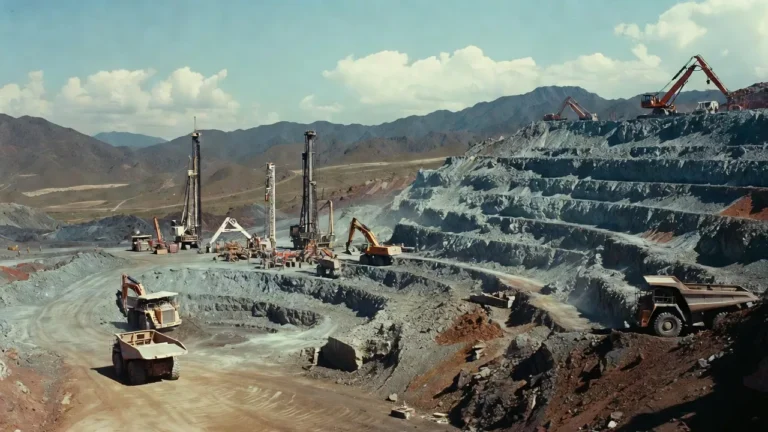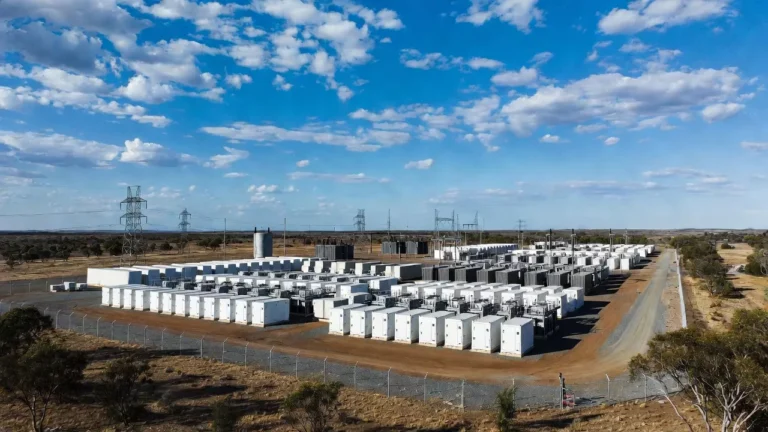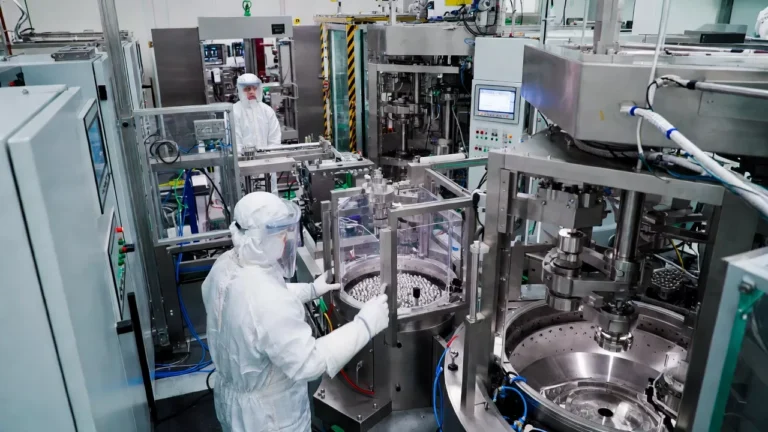
Deep Fission and Deep Isolation Partner to Deliver Complete Nuclear Energy Cycle with Focus on Long-Term Waste Management
In a groundbreaking collaboration poised to reshape the nuclear energy landscape, Deep Fission Inc., a pioneering startup known for its innovative approach to underground nuclear reactor deployment, has signed a Memorandum of Understanding (MOU) with Deep Isolation, a global leader in deep borehole nuclear waste disposal. The partnership aims to provide a full-cycle solution for nuclear energy—one that seamlessly integrates power generation with responsible, long-term management of radioactive waste.
The MOU formalizes a joint commitment between the two companies to explore the licensing and implementation of Deep Isolation’s patented deep borehole disposal technology as a key component of Deep Fission’s next-generation underground nuclear reactors. This move not only strengthens Deep Fission’s offering as a complete, end-to-end energy provider but also sets a precedent for future nuclear technologies to prioritize waste disposal as an integral part of the energy production process.
Revolutionizing Nuclear from the Ground Down
Deep Fission Inc. has emerged as a transformative force in the nuclear energy industry by proposing a radical yet practical design—locating small modular reactors (SMRs) approximately one mile underground. This subterranean approach offers increased safety, natural shielding from radiation, and enhanced protection against external threats or natural disasters. As the world seeks low-carbon, reliable, and secure energy sources, Deep Fission’s underground reactors have drawn attention for their potential to deliver scalable and sustainable nuclear power without the public safety concerns associated with older reactor designs.
However, the benefits of any nuclear power technology are contingent upon how well the issue of nuclear waste is addressed. Traditionally, spent nuclear fuel—highly radioactive material left after the fuel has been used in a reactor—has been stored in surface-level pools or dry casks while nations debate the best long-term disposal strategy. The lack of a permanent solution has long been a thorn in the side of the nuclear sector, hindering public support and policy momentum.
Deep Isolation’s Innovative Waste Solution
Enter Deep Isolation, a company that has reimagined nuclear waste disposal through deep borehole technology. By utilizing existing directional drilling techniques developed in the oil and gas industry, Deep Isolation proposes isolating radioactive waste in stable geological formations thousands of feet underground. These boreholes, drilled horizontally or vertically, can be sealed securely and monitored indefinitely, significantly reducing the risk of leakage or environmental contamination.
Deep Isolation’s approach aligns with global scientific consensus that deep geological disposal is the most effective long-term method for managing high-level radioactive waste. Unlike traditional above-ground storage or large-scale repository projects that often face decades of political and logistical hurdles, borehole disposal offers a modular, scalable, and relatively swift alternative. This method is particularly well-suited to the waste volumes produced by small modular or microreactors like those being developed by Deep Fission.
A Full-Cycle Nuclear Vision
By aligning with Deep Isolation, Deep Fission is positioning itself as not just a clean energy provider, but a full-cycle nuclear energy solution—from initial fuel use to the safe and secure disposal of radioactive byproducts. Under the terms of the MOU, both companies will collaborate to explore licensing opportunities and potential deployment of the disposal system for Deep Fission’s reactors both in the United States and in international markets.
For international clients and governments exploring energy partnerships with Deep Fission, the integrated model offers a turnkey nuclear energy solution with built-in waste disposal—an attractive proposition in a sector often plagued by uncertainties around spent fuel management. In regions where regulatory frameworks for permanent disposal are still evolving, such as in the U.S., the collaboration offers a credible and technologically advanced alternative while national strategies continue to develop.
Executive Commentary on a Transformative Partnership

The leadership teams of both companies emphasized the broader implications of the partnership—not just for their own growth, but for the future of nuclear energy.
“Nuclear power generation requires a waste disposal solution, and responsible users should plan for waste management from the start,” said Elizabeth Muller, Co-Founder and CEO of Deep Fission. “Deep geological disposal is the globally preferred approach, and while other countries are advancing underground repositories, there is an opportunity for the U.S. to take further steps in this direction. Deep Isolation’s solution presents an attractive option for Deep Fission as we work toward a sustainable nuclear future.”
Muller’s statement reflects a growing sentiment among energy innovators: nuclear power, while promising as a low-carbon solution, must come with credible answers to the waste problem to be considered truly sustainable.
“Deep Isolation is proud to partner with Deep Fission to deliver a practical, scalable solution for managing nuclear waste,” added Rod Baltzer, CEO of Deep Isolation. “As new nuclear technologies emerge, a forward-thinking approach to waste disposal is critical. Ensuring that nuclear waste has a reliable and permanent disposal method is essential for the industry’s long-term success.”
This mindset—where innovation in energy generation is matched by equal innovation in waste handling—is essential as the global energy transition accelerates.
Implications for the Industry and Public Policy
The collaboration could serve as a model for how nuclear technologies are rolled out in the future. Historically, reactor development and waste disposal have been treated as separate policy and engineering challenges, often resulting in delays, budget overruns, and public opposition. The joint Deep Fission–Deep Isolation approach merges the two from the outset, enabling smoother project execution, clearer regulatory compliance pathways, and greater public confidence.
For U.S. energy policymakers, the MOU provides a potential way to break the logjam that has stalled nuclear waste strategies for decades. Despite the federal government collecting billions of dollars from utilities to fund a permanent waste repository, the United States still lacks an operational facility, with projects like Yucca Mountain mired in political and legal limbo. Private sector solutions such as Deep Isolation’s may offer a faster, more flexible alternative to centralized repositories, especially when deployed in collaboration with emerging technologies like Deep Fission’s reactors.
Toward a New Nuclear Future
The nuclear industry is entering a period of reinvention. As global energy demand grows and climate goals become more urgent, interest in next-generation nuclear power is on the rise. Governments, investors, and technology developers alike are re-evaluating nuclear’s role in the clean energy transition. Yet without addressing the waste issue, nuclear risks being left behind.
What Deep Fission and Deep Isolation are proposing is not just a technological innovation—it is a systems-level innovation. Their partnership reflects a holistic understanding of the nuclear fuel cycle, one that sees safe waste management not as an afterthought, but as a foundational design principle.
In a future where energy infrastructure must be secure, sustainable, and socially accepted, the ability to provide power and a plan for the byproducts of that power will be essential. With this MOU, Deep Fission and Deep Isolation are laying the groundwork for a new standard in nuclear energy deployment—one that is not only advanced, but also deeply responsible.










